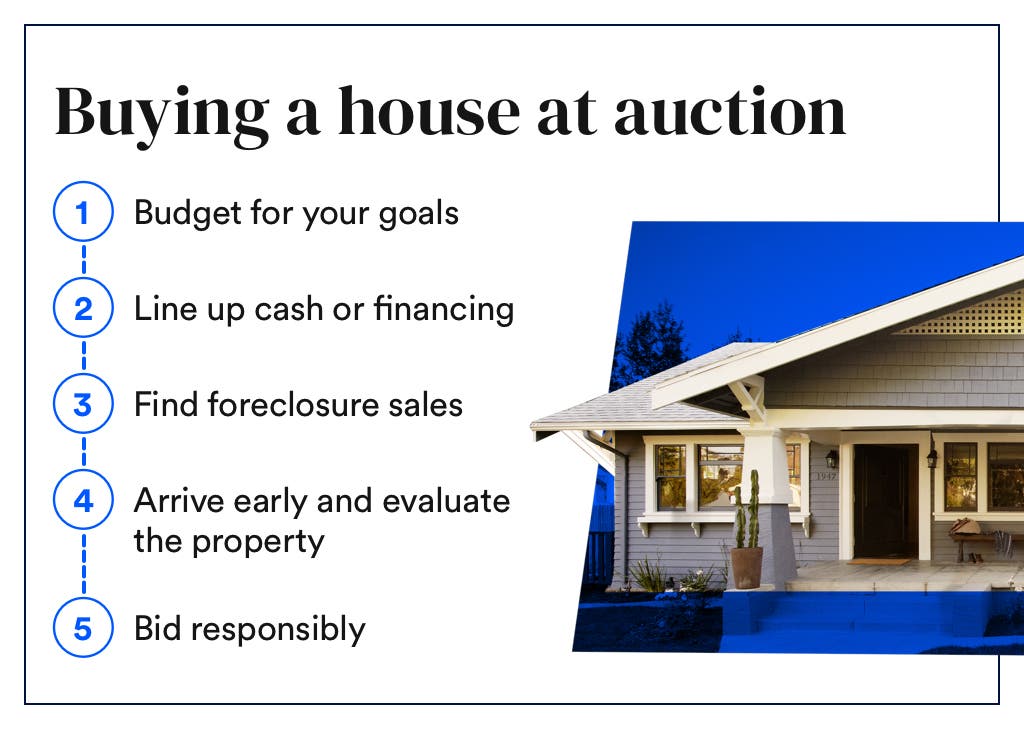
Read Suzanne Hollander’s Commentary published in BankRate Below:
Homes listed for sale on Zillow aren’t the only properties out there. Sometimes, homes are auctioned due to foreclosure and other reasons. Buyers can position themselves to capitalize on an auction opportunity and purchase a home at a significant discount, but they often aren’t as easy to find as regular listings, and many buyers are new to the bidding and purchasing process.
Why auctions happen
A home can be auctioned for several reasons, but in most cases, it’s because the existing owner of the property is experiencing financial trouble. The most common reasons for an auction sale include foreclosure, failure to pay property taxes and outstanding issues with a homeowners association.
“When a homeowner doesn’t make regular payments to the lender, sometimes the lender has no choice but to foreclose on the property,†explains Colby Hager, CEO of Capstone Homebuyers in San Antonio, Texas. “When this happens, the property is often put up for auction.â€
In the last several years, the foreclosure rate has decreased due to a strong economy and job market. However, many expect foreclosures to tick up across the nation due to the recent rise in unemployment. (Here’s more on the coming foreclosure wave.)
“That’s due to the coronavirus and economic downturn,†says Suzanne Hollander, an attorney and real estate professor at Florida International University in Miami. “As moratoriums on foreclosures are beginning to lift in states across the country, there may be more foreclosures.â€
How the auction process works
There are two broad classes of real estate auctions: open and blind, says Johnny Castle, an investment real estate agent for Keller Williams in Ottawa, Ontario, Canada.
“In an open auction, every bidder knows what others are bidding,†Castle explains. “In a blind auction, the bidders don’t know. Both types of auctions will have a reserve value,†which is the minimum bid the seller will accept.
“Typically, that amount is the debt owed to the entity that put the property up for auction, such as the tax debt owed or value of the loan on the property,†Castle says.
Open auctions may be conducted online or in person. With the latter, bidding often occurs at an auction hall, courthouse or city hall.
“In most open auction formats, each bid must be higher than the last bid, and the auction ends when no participant bids higher than the most recent bid, or the bidding may end at a specified time,†Castle says. “The highest bidder acquires the property.â€
Before participating in an open auction, bidders have to agree to the terms of the auction by completing the requisite paperwork or accepting an end-user license agreement, according to Castle.
Bidders also need to verify their identity and demonstrate their authority over any legal entity (such as an LLC or holding company) that will take the title of the property. Furthermore, a deposit is often required before getting permission to participate in the auction.
In a blind auction, the bidder’s identification may be given to the party accepting the bid. A deposit is commonly submitted with the bid along with an agreement accepting the auction’s terms — all of which are usually enclosed in a sealed envelope. As with an open auction, the highest bidder wins the property.
“The actual auction can get very hectic,†Hager says. “There are usually multiple auctions being held simultaneously within a small area and often multiple bidders for each property. The auctioneers move quickly, so it can seem chaotic to anyone unfamiliar with the process.â€
How to buy a house at auction

Every auction will have its own unique procedures, which can also vary according to local and state laws.
1. Consider the rewards and risks
The main benefit of purchasing a home at auction is the ability to buy a property for below market value. Put another way, you may be able to score a sweet bargain.
But there are risks, too, Hollander says. These include:You usually can’t have the property professionally inspected, which could lead to surprises like squatters in possession, structural problems or physical damage to the residence.
You must pay all-cash; financed funds are almost always not accepted.
It’s your responsibility to conduct the necessary due diligence. This includes investigating title issues and outstanding liens.
You must pay for all back taxes in many jurisdictions. If it’s a home in an association, you could be liable for unpaid HOA fees.
What’s more, there’s the danger you could overpay for an auctioned property, especially if you don’t have experience with auctions and haven’t researched the home and its value carefully ahead of time.
2. Know where to look
You can find auction opportunities in local newspapers, online through auctioneer sites like Auction.com and posted in public places like a county courthouse.
“In bigger markets, many real estate investors subscribe to specialized subscription services that provide precise information about properties that may be auctioned,†Hager says.
Additionally, some investors purchase foreclosure lists and property-related data to find out more about homes coming up for auction.
3. Assemble an expert team
Consult with a real estate agent before the auction to determine an estimated market value and what the property will likely sell for. Your agent may also be able to obtain permission for you to tour the property before the auction. (Castle notes, however, that bidders are usually not allowed to walk through the home on the day of the auction.)
“A real estate attorney can also help you understand the terms of the auction,†Castle says. “Your attorney may also be able to conduct a title search to ensure the property is free of liens and other encumbrances that you may have to pay if you are the winning bidder.â€
4. Bid with cash
In almost all auctions, you can’t finance the purchase with a mortgage, so be prepared with cash when you bid.
“The most common rules are that you must conduct your due diligence prior to the auction, attend the auction with funding in hand, and often register with the auctioneer and receive a bidder number,†Hager explains.
If you ultimately have the winning bid, you’ll have to complete paperwork and pay for the property immediately or within 24 hours.
“The money is due at the time the auction concludes,†Hager says. “Most auctioneers take payment from verified funding sources, such as cashier’s checks. Excess funds paid to the auctioneer are generally returned to the buyer within two to six weeks.â€
5. Obtain ownership of the property
If you are the winning bidder, depending on the circumstances of the auction and applicable laws, you may or may not be provided access to the home on the same day. It’s possible that the foreclosed home, for example, may still be occupied by the delinquent borrower until the lender later gets possession of the property and the title, which will be transferred to you.
Be aware that, in some states, a homeowner who loses his or her property at auction for unpaid property taxes can redeem their house or buy it back within a specific period of time known as the “redemption period†— “but that homeowner must work with their local government agency that oversaw the process of the delinquent tax auction in order to redeem that property,†Hager says.
In this scenario, the delinquent homeowner is required to pay back the balance of their taxes during a cancellation period, which may extend for up to one year, Castle says.
If you purchased a home at auction that was later redeemed by the homeowner before the end of the cancellation period, you will be refunded your full purchase price, according to Hager.
“A delinquent borrower losing their home to foreclosure can participate in the auction,†as well, Hager says. “However, if they have the funds to participate in the auction, it would have been more cost-effective to negotiate with the lender prior to the actual auction.â€
Bottom line
Buying a home at auction can yield a great bargain if you do your homework and can withstand the risks.
“You need to know how to research the title [and] make sure you are buying a first position lien, not a second position lien that could be wiped out,†Hollander says. “Understand your obligations to pay cash and when, and realize there are many risks involved.â€
That’s why auctions are often attended by real estate investors seeking to flip a property and make a profit.
“It works well for people with a great deal of experience or who are comfortable asking for help filling in gaps in their knowledge,†Castle says. “It’s smart to go into the process with ample cash reserves, as well, which will reduce associated risks.â€
A safer alternative could be to purchase a property sold via a short sale, which typically comes with the right to inspect, a warranty deed and the peace of mind that the seller must pay any outstanding liens and taxes before closing.
Reprinted from Bank Rate’s September 11, 2020 Article
Disclaimer: Professor Real Estate® written materials apply generally to real estate subjects and are not intended to apply to specific legal issues.
Copyright 2020 ~ All rights reserved. Professor Real Estate® Suzanne Hollander



Comments are closed